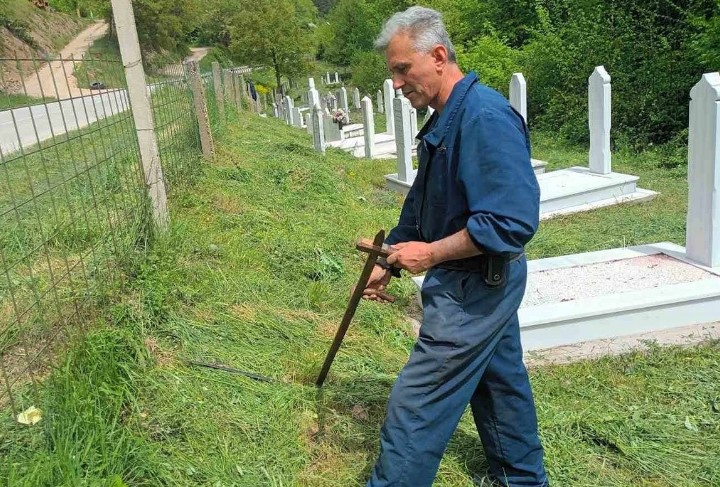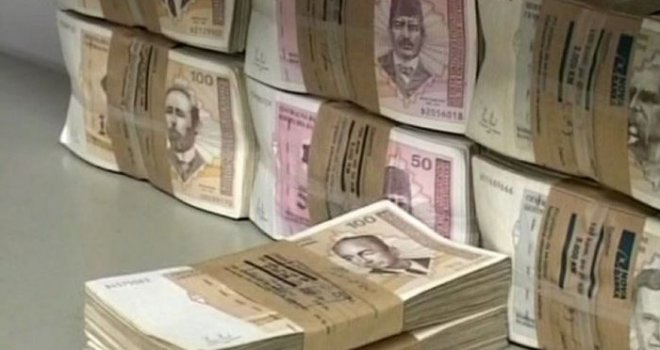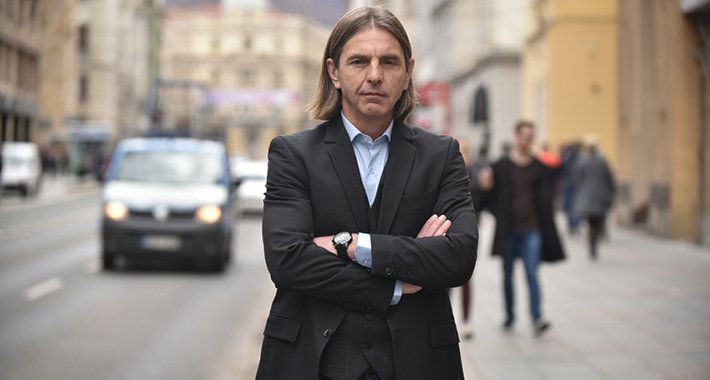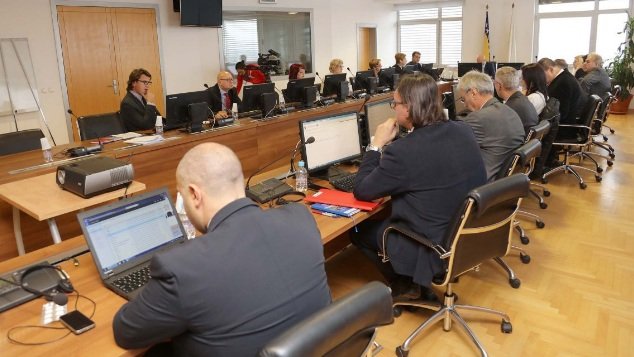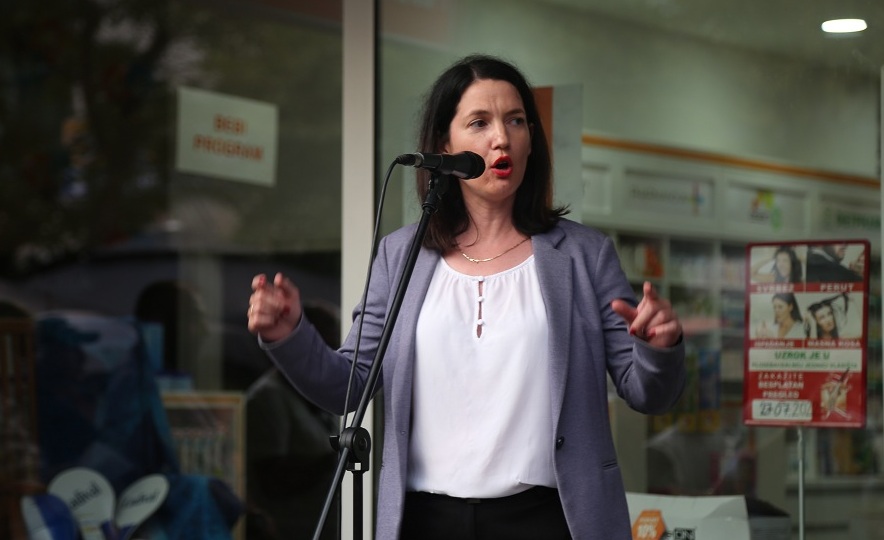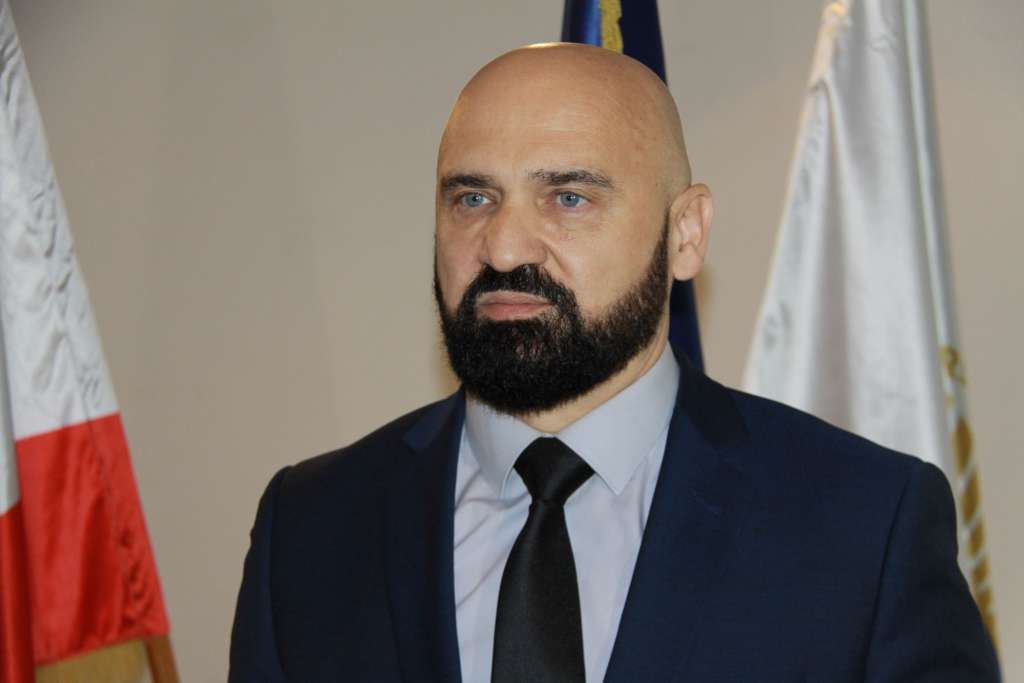Just a few months after you came to Bosnia and Herzegovina, our country has fallen into, as analysts have put it, one of the biggest political crises since the Dayton Accords. How do you cope as a diplomat in this situation?
Let me start by expressing my gratitude to be serving in Bosnia and Herzegovina. It was my wish to work in your beautiful country. A country with both challenges and opportunities. Having said so, for the sake of the people of Bosnia and Herzegovina, I would like to see discussions about what unites rather than what divides, discussions about how to improve education, health, the business climate, how to reduce corruption and how to enhance reforms in order to eventually become member of the EU. The Netherlands has been an active partner of your country. We make efforts to support in strengthening the rule of law, respect for human rights, such as freedom of speech and equality of citizens, security and implementing reforms that should benefit the population. I have worked in several countries that went through very tough times. In general, the population suffers most. The current political crisis in Bosnia and Herzegovina is worrying. As an ambassador I engage in many meetings and I advise my government.
Your diplomatic experience is really impressive; how do you look at what is happening in our country through the prism of such an experience? Do you think our problems are solvable or are we doomed to be a society in permanent conflict?
In my view no society is doomed to be in permanent disagreement or conflict. Reforms and change, that would improve the prospects for the citizens, require true leadership and accountability. It requires leadership that is willing to look for solutions that benefit the population. In my view, the focus should be on what is required to create a more prosperous Bosnia and Herzegovina for all citizens.
You often compare Bosnia and Herzegovina with Lebanon. You were on a diplomatic mission in Beirut; unfortunately you also experienced a personal tragedy on that occasion. Can we compare ourselves to Lebanon and why?
Countries differ and I realize that there is a certain risk in making comparisons.
Bosnia and Herzegovina is, like Lebanon, a beautiful country, with wonderful and hospitable people. It is a country with a great potential. Over the past decades the potential has only partly been used. The tourism sector is an example of this. Your country has so much to offer!
My wife died in the explosion in the port of Beirut in August last year. She wanted to come to Bosnia and Herzegovina as I did. That terrible tragedy has not changed my feelings for Lebanon and for my friends over there. My first impressions in Bosnia and Herzegovina are the same. I travelled to different parts of your country and I’m amazed by its beauty, its potential and the kindness of the people.
Many of the challenges Bosnia and Herzegovina faces are comparable to challenges Lebanon faces. In both countries respect for rule of law needs to be strengthened. Some examples of challenges are the need to reform, to improve the business climate, to fight corruption, to work towards compromise in order to formulate and implement sound policies, to create employment and limit the brain drain. These are not just my impressions. If one looks at, for example, the World Bank Ease of Doing Business Index, The Transparency International Corruption Perception Index and the statistics on migration from both countries one will find similar impressions.
While I understand and appreciate that tragedies of the past play an important role in both countries, I hear from people of all walks of life that they want to see important reforms being decided upon as well as a focus on implementing needed policies, in short, they want to see a better future.
The threat of new war conflicts is becoming more and more current, and at the same time our country is having a hard time dealing with the consequences of the last war. Do you believe that new conflicts in BiH are possible?
Especially in a country like Bosnia and Herzegovina, that has suffered so much from earlier conflicts, in my view leaders and opinion makers have to be very careful not to fuel tensions, not to use inflammatory rhetoric. It is important to remember and to learn from the past. Youth have to learn from the past, but they also have to be able to look at their future with confidence. In this respect one can learn from experience in other countries, like Germany after the Second World War and South-Africa, that went through a remarkable transition under the leadership of Nelson Mandela.
One should limit the risk of new conflicts flaring up. Leading politicians and other leaders at different levels in society have an important role to play. The vast majority of the people would like to live a decent life, without fear. They want their children and grandchildren to have a future with jobs and without conflicts. One can never fully exclude the chance of a conflict occurring, but it is obvious that leaders can play a key role in focusing on how to work towards a more prosperous country.

It was recently announced that the Embassy of the Netherlands in BiH will be more actively involved in the current political negotiations on the future of the country. What exactly does that mean?
The Netherlands has in different ways been an active partner of Bosnia and Herzegovina for many years. Substantial support has been provided through a range of projects over the past 26 years. The Netherlands has been promoting the path towards future EU membership. The results on this path, however, depend on reforms implemented by your government. My colleagues and I are active and try to further strengthen the relations between our countries. We reach out to a wide range of partners all over the country and we actively engage with young people. Both Dutch members of the European Parliament and members of our national Parliament follow developments in Bosnia and Herzegovina with keen interest. Concerns have been expressed about recent developments.
Bosnia and Herzegovina has not been on the list of European and world politics priorities for a long time; it is only in these [past few] months that the presence of representatives of EU and US politics has increased, and we see the stronger involvement of Great Britain. However, the international community is increasingly sending a message to BiH citizens that they need to take responsibility for their country, even during these visits. Do you think that the time of interventionism is over?
The partners you mention, including the Netherlands, would like to see Bosnia and Herzegovina move forward. Friends of your country can support, can push here and there, can help facilitate dialogue, but in the end tangible progress can only be made if there is a wish to implement reforms and policies and to work in a spirit of compromise amongst key domestic stakeholders in Bosnia and Herzegovina. Change in the end has to come from within. In a democracy elections determine who will represent the people.
You had the opportunity to talk to our politicians. What impression did you get during those conversations – are they aware of the responsibilities of this moment?
So far I had interesting and rather open conversations with different politicians, most of whom have been active in politics for many years. They engage in many discussions with a range of international partners and based on their experience know the challenges they have to face and the responsibilities they have. In the end concrete actions count. Like in my country voters have to determine what makes them decide to vote for a candidate and party during the elections. They have to determine whether the politician and party they voted for served them and the country in the best way possible.
During your stay in BiH, you met with a large number of active citizens, do you see in them a strength for political change?
Bosnia and Herzegovina has many skilled and dedicated people. I have met many NGO representatives and others who work hard to improve living conditions for citizens. They provide services, strengthen the skills of young people and promote respect for human rights. Our Embassy supports civil society organizations. As in other countries dedicated citizens can exert influence. In democracies elections decide about changes in politics. As said voters need to decide whom they will vote for and based on what criteria.
An increasing number of people are leaving Bosnia and Herzegovina – often taking entire families with them. What do you think should happen to stop this exodus, and is that even possible?
It is my impression that the vast majority of people in most countries do not feel the urge to leave if the quality of life and the general atmosphere in the country are good. The high numbers of people leaving Bosnia and Herzegovina should be a concern to all. Unemployment levels play a role. There are, however, other reasons why people leave, such as the political discourse of ethnic tensions and high levels of corruption. Good policies, including reforms, that will lead to more employment and prosperity as well as a greater sense of ensuring security and stability are key ingredients.
Around 60.000 people leave Bosnia and Herzegovina every year. Imagine what the consequence will be if this level of migration continues e.g. another 15 years. Leaders at all levels should ask themselves what needs to be done in order to change that trend? What makes people leave and what makes them stay? What can I do to contribute to solving problems that citizens face? What reforms and policies need to be implemented to attract investments, to create employment, to improve living conditions, to strengthen rule of law and to enhance trust in politics and in institutions?
In the end, I would like to ask you what our country looks like to you, and I ask you to tell me honestly what things you like, or dislike, in it.
As indicated at the beginning of the interview I very much like the beauty of your country and the kindness of the people that I meet. I would like to see a greater urge and visible drive to address challenges that are so important to the citizens.
You are at the beginning of your mission in BiH. What can you tell the citizens, what can they expect from your Embassy and how do you plan to communicate with interested citizens?
The Netherlands is a long term partner of Bosnia and Herzegovina, with clear positions about reforms and policies. Our team at the Embassy will continue to promote good relations between our countries and citizens and will contribute to the discussions and plans that should bring Bosnia and Herzegovina closer to EU accession. As said, it takes first of all the government of Bosnia and Herzegovina to take action in that respect. I do not mind politicians to be critical about the EU, but at the same time I ask them what concrete decisions they have taken, what reforms have they adopted, in order to get closer to EU accession and improve the living conditions of the citizens.
We reach out to citizens, organizations and officials all over the country. We sit with them and have open and frank discussions. As an ambassador I want to learn and want to know what their needs and hopes are. I ask them openly what we can do better. That is the spirit in which my team and I want to work. In that way my colleagues and I try to play a constructive role in strengthening the relations between our countries.
We communicate via the Facebook and Instagram pages of the Embassy as well as via my twitter account, @janwaltmans

